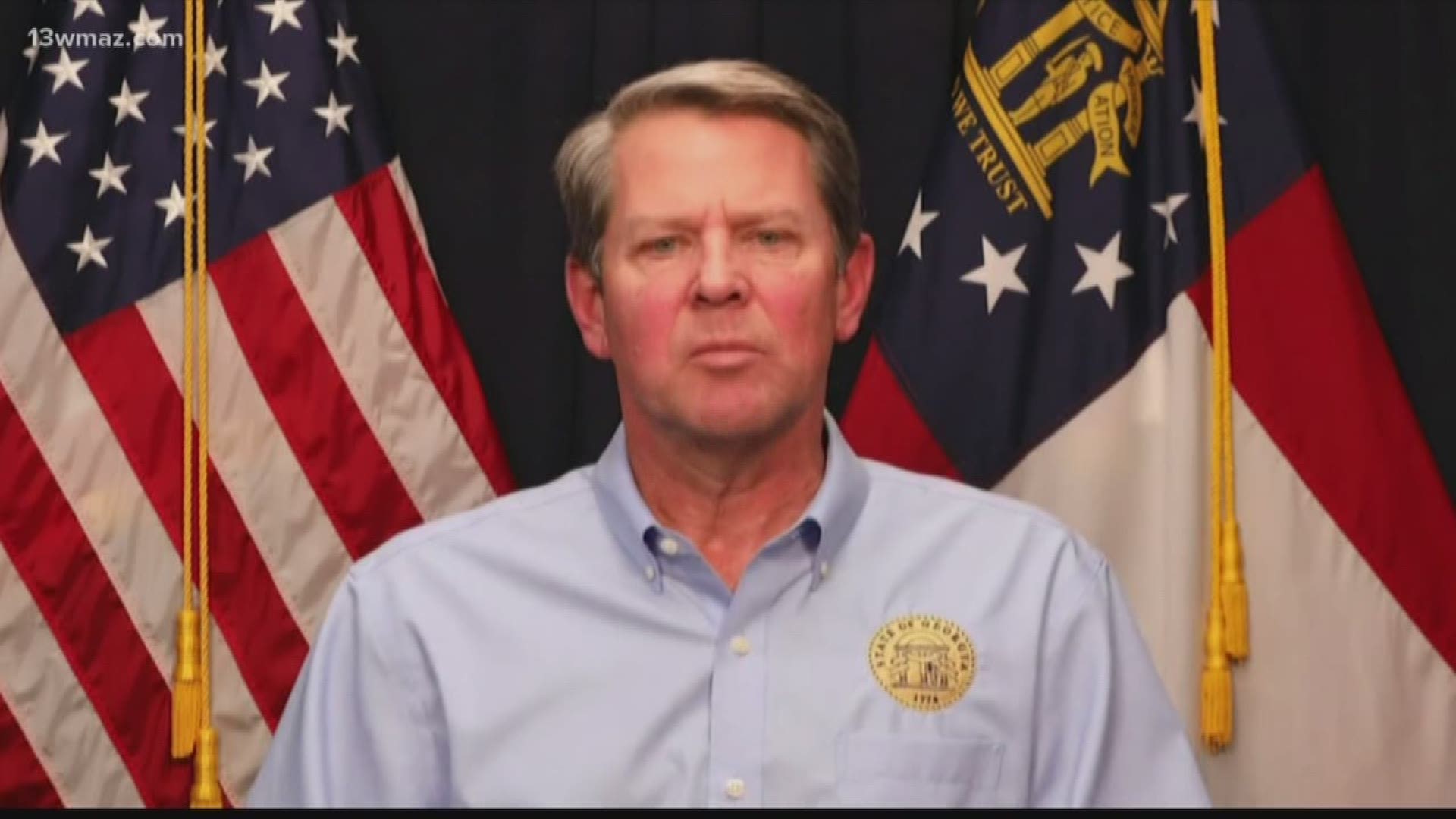ATLANTA — Georgia Governor Brian Kemp has extended the state's shelter in place order through the end of April.
Kemp held a news conference Wednesday afternoon where he made the announcement.
The terms of the shelter-in-place will continue from his previous order, which was originally scheduled to expire on April 13.
He also suspended all short-term vacation rentals in Georgia.
State parks and beaches remain open, despite citizens and commissioners urging him to shut them down.
Here is what you need to know:
All residents and visitors in Georgia are required to shelter in place within their home or place of residence. They are to limit social interaction to prevent the spread of the virus unless they are doing one of four things.
1. Conducting or participating in essential services
2. Performing necessary travel
3. Are engaged in the performance of Minimum Basic Operations for a business, establishment, corporation or organization not classified as critical infrastructure
4. Are part of the workforce for critical infrastructure
RELATED HEADLINES
What are essential services?
The governor has defined essential services as getting necessary supplies or services for your family like food, medical supplies/medicine, supplies to work from home, or products to maintain safety and sanitation of your residence. There should be as little in-store shopping as possible.
Engaging in activities essential for the health of your family, like seeking medical or emergency services.
Exercising outdoors as long as a distance of 6 feet is between you and anyone who does not occupy your home
What are Minimum Basic Operations?
Anything that’s done to maintain the value of a business. This includes providing services, managing inventory, security, or payroll.
Employers should be making it easier for employees to work remotely from their homes.
Employees who are working outdoors without regular contact with others, like delivery services, contractors or landscapers.
What is considered critical infrastructure?
16 sectors whose assets, systems, and networks, whether physical or virtual, are considered so vital to the United States that their incapacitation or destruction would have a debilitating effect on security, national economic security, national public health or safety.
- Chemical
- Commercial facilities
- Communications
- Critical manufacturing
- Dams
- Defense industrial base
- Emergency services
- Energy
- Financial services
- Food and agriculture
- Government facilities
- Healthcare and public health
- Information technology
- Nuclear reactors, materials and waste
- Transportation systems
- Water and wastewater systems
What should those businesses be doing for their employees?
Kemp’s order says businesses that remain open must implement measures to mitigate the spread of coronavirus like screening employees who show signs of illness, requiring those employees to not report to work and instead seek medical attention, increase sanitation, require handwashing, provide PPE, prohibiting gatherings during work hours, allowing employees to take breaks outside, hold meeting virtually, suspend the use of PIN pads or devices that require electronic signatures, and increase space between coworkers.
What else is in the order?
All restaurants and social clubs will cease dine-in services. Takeout, curbside delivery and delivery are permitted.
All gyms, fitness centers, bowling alleys, theaters, live performance venues, amusement parks, body art studios, estheticians, salons/barber shops, massage studios and bars will close to the public.
People should not receive visitors under the order unless it is for a medical service, the visitor is instrumental to your daily life, they are providing you with necessary supplies, or you are at the end of your life. That is to be strictly enforced by nursing homes and long-term care facilities.
Gun shops are allowed to remain open.
Anyone who violates the order is guilty of a misdemeanor.

